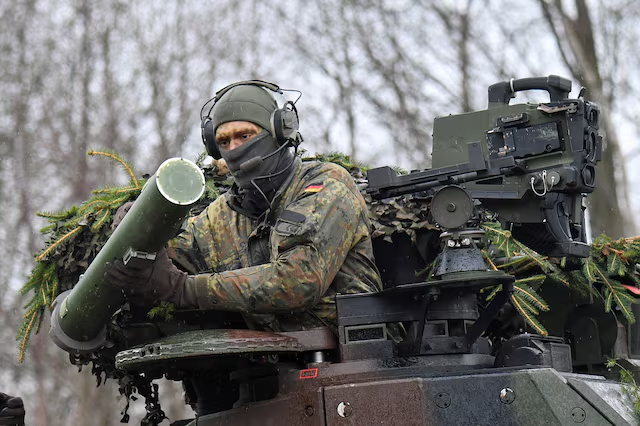The European Commission’s flagship €150 billion initiative to bolster continental defence capabilities through joint borrowing may contravene EU treaties, according to a confidential German parliamentary report obtained by Politico.
Dated 30 April, the Bundestag’s legal assessment warns that the proposed Security Action For Europe (SAFE) instrument, designed to provide long-term loans for weapons procurement, could violate prohibitions on using EU funds for military operations.
The analysis explicitly questions SAFE’s alignment with Article 41(2) of the Treaty on European Union, which bars EU budget expenditures “having military or defence implications.” It notes the mechanism’s proposed structure under Article 122, typically reserved for economic emergencies, is “not universally accepted” as legitimate justification.
Particular scrutiny falls on loans intended to arm Ukraine rather than EU members, which the report suggests would “fall under the treaty ban” most unequivocally. Despite these concerns, SAFE received formal approval last month with Germany’s support, rendering the parliamentary assessment unlikely to alter national policy. The German defence ministry declined to comment on the report’s findings.
Beyond legal objections, Bundestag experts challenge SAFE’s economic rationale. The report highlights “estimated expenditure multipliers between 0.4 and 1.0”, substantially lower than public investments in infrastructure or education, suggesting limited stimulus value. It cautions that “a significant portion of the positive effects of increased defence spending may occur abroad, particularly in the USA” depending on supplier geography.
The initiative’s Buy European clause, restricting non-EU/EFTA/Ukrainian contractors to 35% of project value, fuels further complications. While aiming to strengthen European defence autonomy, the measure exposes rifts among member states regarding third-country access.
Member states have expressed differing views on whether countries such as Canada or the United Kingdom […] should be allowed to participate on an equal footing. Turkey and Serbia […] are not mentioned at all.
Though SAFE permits EU applicants and security pact signatories like the UK to join procurements, access levels remain undefined. This ambiguity surfaces as Canadian Prime Minister Mark Carney prepares to sign a bilateral security agreement in Brussels.
The report ultimately frames the initiative as legally precarious and economically unproven, casting doubt on Brussels’ capacity to rapidly transform defence ambitions into treaty-compliant, strategically coherent policy.
